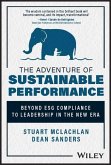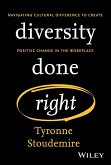Provides an original account of international business ethics grounded in cosmopolitan human rights theory
Transnational companies (TNCs) operate in a variety of political jurisdictions and legal frameworks. As international trade and foreign direct investment (FDI) continue to increase, TNCs based in industrialized 'home' nations are gaining enormous economic and political influence in developing 'host' nations. Corporations operating internationally, particularly in nations with limited regulatory and enforcement resources, are often free to determine whether they will follow existing laws and guidelines regarding consumer protection, worker safety, and environmental protection.
The Ethics of Global Business provides clear and pragmatic guidance for business leaders interested in the ethical conduct of international business. With a cosmopolitan human rights perspective on international business ethics, this comprehensive volume describes modern transnational companies, explains why companies and their leaders are responsible for company policies and practices, and presents a conceptual framework grounded in respect for basic human rights. Arnold addresses a wide range of central topics, such as the role of transnational companies in global justice, the human rights obligations of transnational companies, labor rights in global supply chains, corporate responsibility regarding global climate change, and exploitation and empowerment at the base of the global economic pyramid.
_ Presents and defends a theory of moral legitimacy that views TNCs as agents of justice
_ Offers an alternative ethical conception of CSR that integrates a cosmopolitan human rights perspective
_ Provides critical and ethical analysis of recent United Nations (UN) initiatives on business and human rights including the UN tripartite framework recently approved by the UN Human Rights Council
_ Analyzes current Base of the Pyramid (BoP) strategies
_ Defends minimum standards for working conditions in global supply chains and analyzes wage exploitation in developing nations
_ Demonstrates the need for ethical CSR and morally legitimate BoP business ventures that do not exploit people living in moderate and extreme poverty (MEP)
The Ethics of Global Business is essential reading for business leaders, policymakers, scholars, undergraduate and graduate students, and general readers with an interest in business ethics, global justice, human rights, sweatshop ethics, solutions to global poverty, corporate environmental sustainability, and global climate change as related to transnational companies.
Hinweis: Dieser Artikel kann nur an eine deutsche Lieferadresse ausgeliefert werden.
Transnational companies (TNCs) operate in a variety of political jurisdictions and legal frameworks. As international trade and foreign direct investment (FDI) continue to increase, TNCs based in industrialized 'home' nations are gaining enormous economic and political influence in developing 'host' nations. Corporations operating internationally, particularly in nations with limited regulatory and enforcement resources, are often free to determine whether they will follow existing laws and guidelines regarding consumer protection, worker safety, and environmental protection.
The Ethics of Global Business provides clear and pragmatic guidance for business leaders interested in the ethical conduct of international business. With a cosmopolitan human rights perspective on international business ethics, this comprehensive volume describes modern transnational companies, explains why companies and their leaders are responsible for company policies and practices, and presents a conceptual framework grounded in respect for basic human rights. Arnold addresses a wide range of central topics, such as the role of transnational companies in global justice, the human rights obligations of transnational companies, labor rights in global supply chains, corporate responsibility regarding global climate change, and exploitation and empowerment at the base of the global economic pyramid.
_ Presents and defends a theory of moral legitimacy that views TNCs as agents of justice
_ Offers an alternative ethical conception of CSR that integrates a cosmopolitan human rights perspective
_ Provides critical and ethical analysis of recent United Nations (UN) initiatives on business and human rights including the UN tripartite framework recently approved by the UN Human Rights Council
_ Analyzes current Base of the Pyramid (BoP) strategies
_ Defends minimum standards for working conditions in global supply chains and analyzes wage exploitation in developing nations
_ Demonstrates the need for ethical CSR and morally legitimate BoP business ventures that do not exploit people living in moderate and extreme poverty (MEP)
The Ethics of Global Business is essential reading for business leaders, policymakers, scholars, undergraduate and graduate students, and general readers with an interest in business ethics, global justice, human rights, sweatshop ethics, solutions to global poverty, corporate environmental sustainability, and global climate change as related to transnational companies.
Hinweis: Dieser Artikel kann nur an eine deutsche Lieferadresse ausgeliefert werden.








